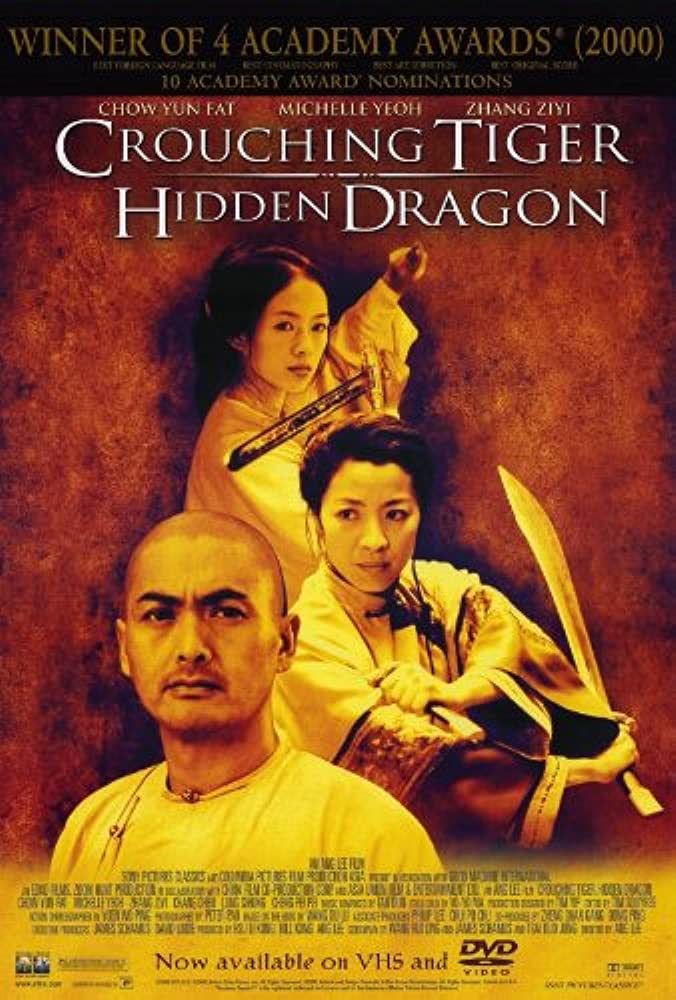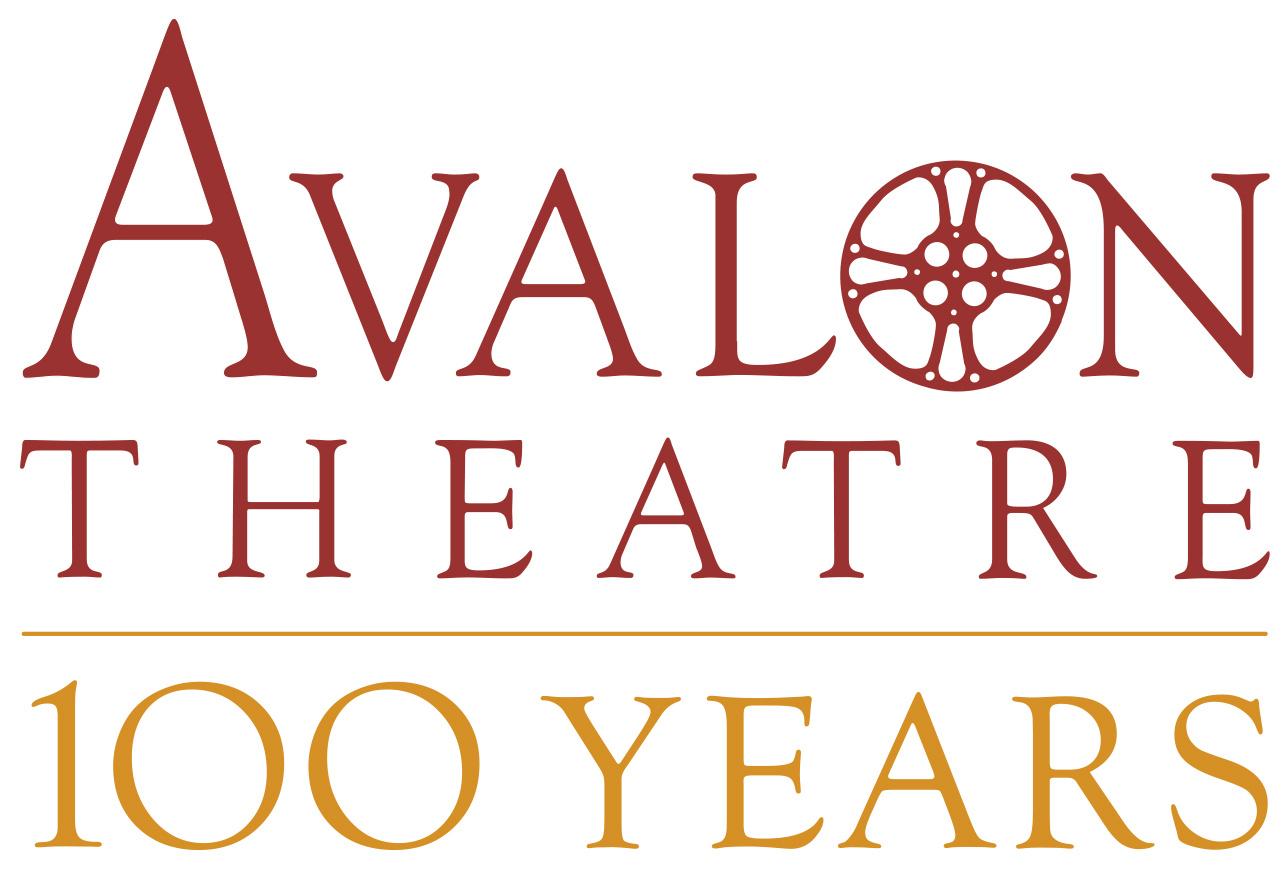Proving our Humanness, Film of the 2010s
 As we look back at 100 years at the Avalon, we’re compelled to remember some of the wonderful movies that have played at our historic theater—one of the last remaining neighborhood theaters in DC.
As we look back at 100 years at the Avalon, we’re compelled to remember some of the wonderful movies that have played at our historic theater—one of the last remaining neighborhood theaters in DC.
The 2010s were an interesting time for movies. In theaters across the country, folks lined up to see live-action Disney movies, the Harry Potter saga and high-grossing superhero flicks. But the 2010s also offered up something else: perspective on the human condition.
The Moral of the Story
The good. The bad. The ugly. And we aren’t talking about the 1966 classic here. We are examining the movies that gave us pause and made us dig in introspectively, exploring human existence and the gray areas that fall between right and wrong.
2010 documentary Exit Through the Gift Shop invited audiences to question the integrity of street art, critique the commercialism within the art world, and examine the human desire to express oneself through art. Disorganized at times, the documentary focuses on artist Banksy, who is known for dramatic street art and moving the meter on social issues in a very public, yet anonymous, way.
Hirokazu Kore-eda’s Shoplifters (2018) followed a fictional family that apparently kidnap a child that they took in from an abusive home. The family makes their way through poverty by stealing. The endearing characters gain audience acceptance while their actions dance across the fine line of morality.
Zero Dark Thirty (2013) is a dramatization of the manhunt for Osama bin Laden, following protagonist Maya (Jessica Chastain), a CIA agent. Aside from suspense that kept audiences at the edge of their seats (all while knowing the outcome), the movie also offered a controversial glimpse into torture tactics. Perhaps most impactful of all, was the public discourse of the usefulness of torture in war and whether or not the film needed to be more historically accurate.
Coming of Age
Ah, adolescence and young adulthood. Perhaps no other time feels quite as dramatic in real life. Films from this decade had a knack for bringing audiences back to what it is like to grow up.
Boyhood (2014) garnered robust attention as one of the most critically acclaimed films of the decade. The film follows Mason, played by Ellar Coltrane, as he grows up with divorced parents. Aside from the astonishing fact that Mason is played by the same actor filmed over the course of 12 years, the film captured the realness of what it was like to grow up.
Lady Bird (2017) coming in with a Metascore of 93, focuses on a young woman who is a senior in high school. Her true-to-life annoyance with her mother, navigating her first sexual encounter, and piecing back together a relationship with her best friend bring a realism that audiences can relate to. Packing a subtle nod to feminism, anyone who has ever been a teenage girl, or known one, appreciated this one.
Inspired by her own life, Joanna Hogg wrote and directed 2019’s The Souvenir which details character Julie’s (Honor Swinton Byrne) life as a film student in the 1980s and her doomed relationship with Anthony (Tom Burke) who suffers from a heroin addiction. Julie is manipulated and mistreated throughout the film, and yet audience members could relate to the story of young love with the absolute wrong person.
Crime, Glamorized
This decade had a moment with darker crime dramas that audiences ate up. With over-the-top scenes of drugs and sex, and no shortage of overindulgence, Wolf of Wall Street and American Hustle, both released in 2013, did well at the box office. Sometimes laughing, oftentimes wincing, these films offered a peek into the underbelly of the wealthy.
Nearly unrecognizable, Adam Sandler starred in 2019’s Uncut Gems, portraying impulsive, gambling-addicted Howard. At first glance, audiences may have been disgusted with the wrong-doing of the main character, though many rooted for him in the end.
Sci-Fi and the Subconscious
On the science fiction front, the 2010s offered paranoia, and maybe a bit of insight into our deepest fears.
The 2010 thriller Inception played mind tricks with viewers and was the highest-grossing film of the year. Gaining access into the subconscious mind of a criminal by entering a dream (within a dream, within a dream) audience members had to follow closely to appreciate the intricacies of the plotline. Surely, the filmmakers were pinching themselves after its widespread success.
A cross between sci-fi and a metaphor for mental illness, Melancholia (2011) is a unique, vividly shot apocalyptic movie. Is a planet crashing into Earth, or is it something from within?
Another notable flick, Ex Machina (2014) plays on a fear that has existed since the rise of the machine with the possibility of artificial intelligence taking over humankind. Winning an Oscar for Best Achievement in Visual Effects, this film took audiences on an electrifying journey trying to guess whether machine and man would cooperate, or if an evil robot would win after all. With today’s technological advances, reality may become stranger than fiction.
That Which Makes the Imagination Soar
Visually stunning and fanciful, 2012’s Beasts of the Southern Wild wowed audiences and critics alike with its likable 6-year-old main character, Hushpuppy (Quvenzhané Wallis). While melting icecaps, her father passing and poverty seem to conspire against her, Hushpuppy’s strong will and childhood perspective carry her along an adventure to find her mother. This film seemingly brings light to a dark place to beat all odds.
Light-hearted and moving, 2011’s Hugo, directed by Martin Scorsese, tells a family-friendly tale of an orphan who lives in a train station in the 1930s. A playful piece, Hugo is in search of a lost key to a mechanical man that can uncover secrets of his father’s past.
Known for whimsical post-impressionist pieces, Vincent Van Gogh’s art and life were shown on screen in 2015’s Vincent Van Gogh: A New Way of Seeing. Presented by the Vincent Van Gogh Museum in Amsterdam, this film showcased over 200 paintings and letters that his brother received. Films like this bring the imagination of artists to cinema goers and can be enjoyed through the Avalon’s Exhibition on Screen series.
The 2010s was a decade of film that took audiences on a wild ride, playing into our morals, our psyche and our imaginations.
Perhaps more than anything, this decade of film can be summed up into this: movies can tell us about the world that we live in, but more likely they tell us about the worlds that live within ourselves.
We revisited the 2010s with us this month as we show Academy Award-Winning Moonlight (2016) as a part of our Centennial program, 100 years of Cinema Magic.
This film chronicles the life of a young black man from childhood to adulthood as he struggles to find his place in the world while growing up in a rough neighborhood of Miami.
After the showing, enjoy a special Q&A segment moderated by Washington Post chief film critic Ann Hornaday, featuring guest speaker Wil Haygood, author of Colorization: One Hundred Years of Black Films in a White World and The Butler: A Witness to History.
If you’d like to help the Avalon continue to offer thought-provoking entertainment for years to come, consider a tax-deductible donation today.


